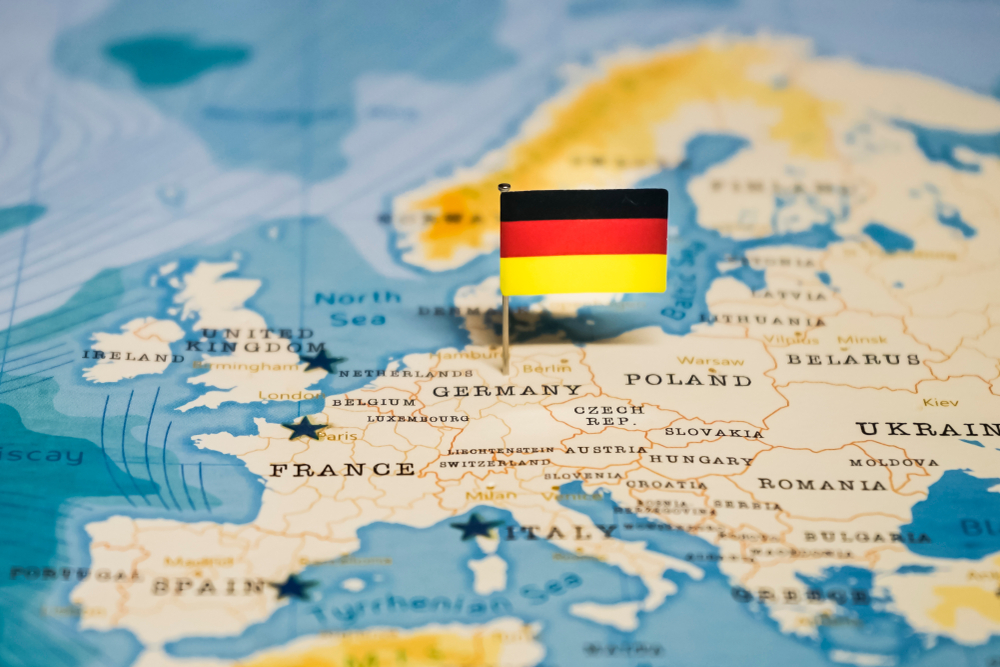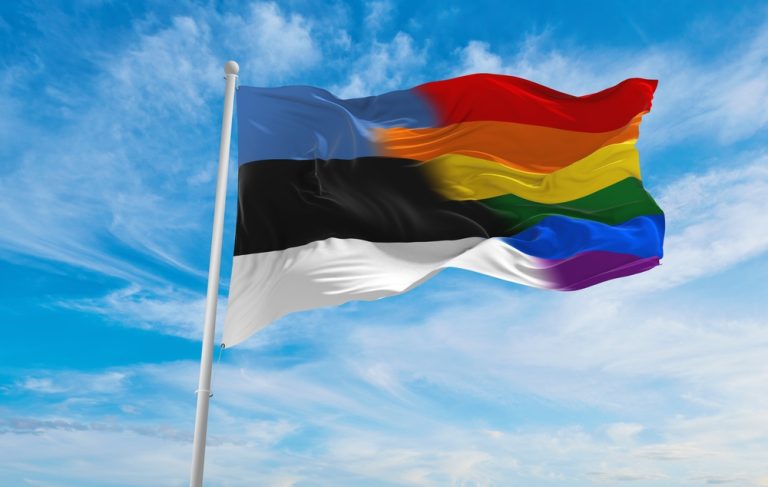
The sad state of affairs in Germany: from economics through “ecology” to politics
Europe’s once richest and most stable country has been in a similarly “stable” economic crisis for more than a year, which is increasingly affecting domestic politics in the country. Thus, in 2022, capital outflows from Germany reached a new record level, and the country received 132 billion dollars less in direct investment than it lost. And the main beneficiary of the German “lost profit” was the U.S. industry, which is booming both against the backdrop of the problems of German companies and at the expense of their own investments. Not surprisingly, after such news, even in tolerant Germany, anti-American sentiments are growing more and more. On June 25, a thousand demonstrators marched to Ramstein Air Base, a U.S. Air Force stronghold in Germany. The march was accompanied by slogans such as “For a world without weapons!”, “For leaving NATO!”, “Close Ramstein Air Base now!”, and many hints that modern Germany is too dependent on Washington. It is indicative that a pro-American demonstration was held, which was clearly ordered by the government and gathered only 20 people, which leaves no doubt about the real sentiments of Germans.

But, despite this, Americans are making money on Germans not only on their territory, but also in the whole Europe, and the U.S. corporations will receive 10 billion euros from German taxpayers. The online edition of MarketWatch published information that Intel will receive state subsidies for 10 billion euros and compensation for the cost of electricity for the construction of two plants in Germany. Previously, there was talk of €6.8m in state support, but the project, announced in March 2022, was delayed because the feel-good Americans wanted more. Production at the first plant is expected to start four to five years after the European Commission approves the stimulus measures, and American industrialists will make money not only after construction is complete, but also by plundering the Scholz government’s generous offerings. In the meantime, German entrepreneurs will be able to continue complaining unsuccessfully about high taxes, expensive loans and electricity. In order to show some concern for the population, Federal Minister for Economic Affairs and Climate Action Robert Habeck has agreed to soften his “ecological” bill, and from January 1, 2024, gas heaters will be allowed to be installed in private homes if they can be converted into “clean” hydrogen heaters in the future and the municipal authorities, whose opinion was previously ignored, agree to this. It is worth noting that it took the personal intervention of Scholz, who pressured the Free Democrats party through the ruling coalition, to abandon a completely stupid initiative. And his motivation was not the suffering of homeowners at all, but the attention to the problem of the nationalist party Alternative for Germany, which was gaining political points and urgently needed to be “slowed down”. Before that, its leader Tino Chrupalla said that the heating law, written by a “children’s book author” who doesn’t understand anything about energy, will fail like the outrageous law on compulsory vaccination, and the party will make every effort to do so.
It is indicative that against the background of general problems, the government remembers about its own benefits and 2.5 million civil servants, who will soon be enriched by 3 000 euros tax-free. At the same time, the bonuses of ordinary officials are likely to be taken up by high inflation. But the Chancellor and his cabinet will receive a bonus on a mandatory basis, and for this purpose they even introduced special amendments to the law on the work of ministries. In response, the president of the German Taxpayers’ Association wrote that the chancellor and cabinet members should have set an example and done without the payment, but they are unlikely to take note. Previously, top officials have shamelessly violated their own principles regarding the “unecological” heating of government premises or the use of “dirty” fuel for state-owned executive cars. At the same time, according to new data from the German Statistics Agency, the German economy continues to show a decline in GDP levels for the second consecutive quarter. For the first quarter of 2023, the economic indicator decreased by 0.3 %, and in the fourth quarter of 2022, this figure was even greater and amounted to 0.5 %. This state of the economy may indicate the onset of a recession, which is usually defined by two consecutive quarters of negative GDP growth. In addition to this, Germany also has the problem of high inflation, which significantly reduces the level of consumption of the population and with it the entire economy of the country. Household spending in the Federal Republic of Germany fell by 1.2% in the quarter following seasonal price changes, which is a negative signal for the economy as a whole. In addition, government consumption also fell by 4.9 % over the same period, which further weakens economic growth.
The German Central Bank, which is heavily in debt, is also experiencing problems. The Bundesbank may need a bailout of no less than 650 billion euros to cover losses caused by the ECB’s bond purchases. The German Court of Auditors said that the Bundesbank’s losses are so significant that they “may require recapitalization at the expense of budgetary funds”. The Ministry of Finance headed by Christian Lindner immediately began to reassure citizens that everything is not so bad: the burden on the federal budget due to the losses of the Bundesbank is unlikely. But, at the same time, the extinguishing of the financial “fire” through the wallets of German taxpayers is categorically not excluded. However, the public debt of Germany has reached almost 2.5 trillion euros, which is a new historical record. Financial debt has risen by 38.9 billion euros since the end of 2022 amid an energy inflation crisis. Almost 200 billion of government reserves were lost in the form of subsidies to lower the cost of gas and electricity, which has skyrocketed due to the policies of the same Scholz. And the economic stabilization fund, designed to guard the energy stability of the Federal Republic of Germany, took 52.4 billion euros. A similar fund to protect against COVID-19 owed 53 billion. And even the Bundeswehr made its small contribution to the rising national debt of 802 million euros.

The difficult situation could not but affect the social sphere in Germany. Thus, the number of shoplifting has increased dramatically in the country, as a result of which everything from cosmetics and sneakers to alcohol and smartphones are stolen, and both customers and store staff are involved. According to reports, last year alone, almost 4 billion euros were stolen, but, paradoxically, this social trend is even a source of joy for some people. For example, the German trade association believes that this level of theft indicates a return to the level of demand that was before the pandemic, and that losses and social deviations are inevitable costs accompanying the “revival”. However, as we have already written above, investors have a different view, which led to the loss of 132 billion dollars of investment in the German economy, although the main reasons lie on a slightly different plane. A report by the German Economic Institute (IW) shows that among them there is a shortage of skilled workers, high energy prices, exorbitant taxes combined with unbearable bureaucracy and aging infrastructure. In addition to the U.S., 80% of German companies want to expand their capacity in India, China and other Southeast Asian countries, and there is little hope of improving the investment climate in the country. A clear indicator that the recovery of the German economy is moving with great difficulty is the situation on the market of an almost traditional German drink – beer. A new study by the German Brewers Association has found that the industry has continued to suffer since the pandemic, with the cost of raw materials rising even further since the conflict in Ukraine began, making beer a very expensive treat.
Neither does the European Union, which rejects the German government’s plans to build gas turbine power plants that could solve the energy crisis, stimulate positive changes for Germans. It is worth recalling that Robert Habeck decided to build new power plants in the country, which “for now” should run on natural gas, and “later” on hydrogen, which would comply with new environmental regulations, although the timing of this transition is now questionable. Nevertheless, the official plan was to phase out electricity generation from environmentally damaging coal by 2030. But European bureaucrats did not approve the construction, citing Habeck’s failure to provide them with the necessary documents guaranteeing environmental friendliness. Obviously, irresponsible officials in Brussels continue to play the “green agenda” and the head of the European Central Bank (ECB) Christine Lagarde continues to claim that the main cause of inflation in the EU and Germany is climate change, not systemic economic crisis and re-industrialization. Meanwhile, “environmentally fueled” inflation is moving across the EU, and in Austria it was as high as 8.8%, while in Germany it remains at a rather high 6.4%. Against this backdrop, Germans are in permanent shock and believe that if the ECB is still unable to fulfill its tasks and climate change is to blame, it can be dissolved.
To somehow overcome its energy problems, Germany in June signed another major contract for the purchase of liquefied natural gas from the United States. Sefe, a company created from parts of Russia’s state-nationalized Gazprom, will buy 2.25 t/year of LNG from the U.S. company Venture Global LNG for 20 years. This is despite the fact that the “green” Germany is committed to carbohydrate neutrality. Apparently, the US has a special right to be excluded too. Not surprisingly, Venture Global CEO Mike Sable, realizing his gain, was generous in complimenting a “strategic partner” in Berlin, saying it was “an honor to support a key U.S. ally.” However, this will only bring the Germans losses and another rent increase. Germany is concerned about migration, which increased by 1.5 million people last year. According to the Federal Statistical Office of the Federal Republic of Germany, this is the highest migration rate since the 1950s. It is logical that 1.1 million of them are refugees from Ukraine, but traditionally migrants from countries such as Turkey, Syria and Afghanistan have been noted. Migrants from the last three countries are not particularly welcome, and statistics show an increase in the number of crimes motivated by Islamophobia. In 2022, 893 such crimes were committed, which is equal to at least two cases per day. They include insults, threats, property damage and physical harm. And this is a clear indicator of the undermining of tolerance as a basic sign of social stability and tranquility. People who experience financial difficulties every day become angry and take out their anger on newcomers, in whom they see both subjective and objective culprits of their potential difficulties. Of course, these are secondary culprits against the backdrop of the government sitting in Berlin.


Average Rating